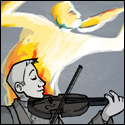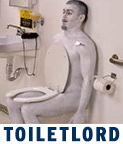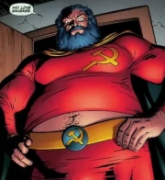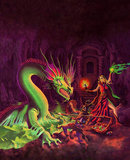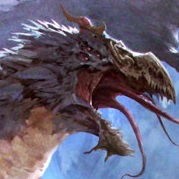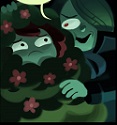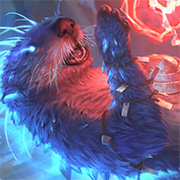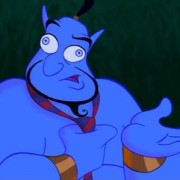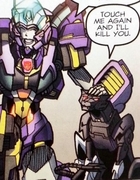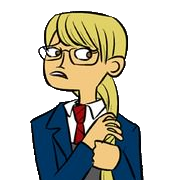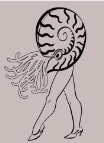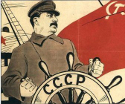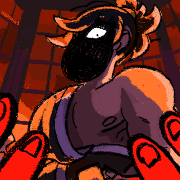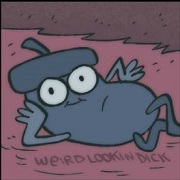|
Splicer posted:The (far from easy) solution here is Incidentally, I hate this design idea - not your advice, Splicer, just the concept that there are fights that don't matter beyond how much attrition they can inflict, and that this should be the default for every adventure. I'd much rather we just had the climactic fights, and we can have special rules for the one time in a dozen adventures that the DM wants to do "this is the attritional adventure where the heroes have to win despite being really worn down". Every other time, it'd be a much better game if each fight is an island.
|
|
|
|

|
| # ? May 26, 2024 00:51 |
|
I mean, lots of people run small encounters meant to wear down the PCs, it's far from a once-in-a-dozen adventures thing. Stuff like this is why D&D is so contentious--it's a very broad genre umbrella and a single game can't possibly cover all the ways people commonly play D&D. I do think there are elements you can identify as only appealing to a small minority and cut them out. But like I said, that's very contentious.
|
|
|
|
Attrition fights are fun especially if you can ace them and minimize or even totally negate any attrition they might've caused. I've told this story a few times, but I once played a 4E game that was literally set inside a 3E module by a lazy DM, like, it's a big dungeon map and if the 3E module says there's a 10x15 room with 2 goblins in it, that's what we fight. Obviously, two goblins are extremely easy for 4-5 4E PCs to take down... but are they easy to take down without you so much as getting scratched? It could be the difference between spending a healing surge or not! So lining up all or encounter powers to splatter everything at top speed, and holding our collective breath as enemies made attack rolls that might or might not cost us some HP and therefore some per-day healing surges, was a lot of fun - and it went by quick, too.
|
|
|
|
Halloween Jack posted:I mean, lots of people run small encounters meant to wear down the PCs, it's far from a once-in-a-dozen adventures thing. I'd also argue it's okay if there's some penny ante problems for PCs, most fiction will also have stuff like brief waylays or small things that only matter specifically because the characters are otherwise taxed. I think the problem is some games are bad about scaling those smaller conflicts and troubles.
|
|
|
|
Deptfordx posted:Agreed, and having also tried Monster of the Week. I've concluded I just don't like the Powered by the Apocalypse system. MotW has a problem that it shares with many of the early PbtA hacks which is an urge to come up with a content category, like 'supernatural crime investigation' or 'sci-fi', and then cram in playbooks that span the entire breadth of that category. It leads to the issue of having a group of PCs that include some non-combat bookworm alongside an absolute murder machine because you're limited by the playbooks available. In the case of MotW specifically, the system seems bent on leading up to an encounter with the big bad who is a sack of hit points (or multiple sacks of hit points) that will present an impossible challenge to veritably all the non-murder machine playbooks. Velma is going to get ripped apart by the werewolf pack but the Arch-Angel Samael has his divine katana and a few quips to use before the carnage is over and he goes home. A lot of PbtA hacks usually suck pretty hard because the authors don't understand how the AW playbook system and/or AW combat really works. Any hack that introduces hit points should be discounted almost out of hand.
|
|
|
|
Halloween Jack posted:Stuff like this is why D&D is so contentious--it's a very broad genre umbrella and a single game can't possibly cover all the ways people commonly play D&D. I do think there are elements you can identify as only appealing to a small minority and cut them out. But like I said, that's very contentious. This is D&D's big problem, in my opinion, and why I try to avoid running any edition of it other than B/X or 4E (both of which have pretty clear visions of how they should be played). 5E is just trapped in a web of design constraints that pull it in too many directions--I actually think it's an extremely well designed game, given those constraints, even if I don't think it's especially good. Gort posted:Incidentally, I hate this design idea - not your advice, Splicer, just the concept that there are fights that don't matter beyond how much attrition they can inflict, and that this should be the default for every adventure. Attrition is another one of those weird double edged swords. If you don't have it, then as soon as a fight breaks in the players' favors it just becomes a meaningless mop-up slog. If you do have it, your entire game's math breaks if you don't make sure that each 'adventuring day' is precisely 4 combats long (one easy, two medium, one hard). Attrition works pretty well in older editions because they're structured as dungeon crawls that are inherently a little 'push your luck'--the players are ultimately the ones who get to decide how long the adventuring day is, not the GM (although this creates all sorts of other problems, like making sure a 15-minute adventuring day doesn't become optimal).
|
|
|
|
BlackIronHeart posted:MotW has a problem that it shares with many of the early PbtA hacks which is an urge to come up with a content category, like 'supernatural crime investigation' or 'sci-fi', and then cram in playbooks that span the entire breadth of that category. It leads to the issue of having a group of PCs that include some non-combat bookworm alongside an absolute murder machine because you're limited by the playbooks available. In the case of MotW specifically, the system seems bent on leading up to an encounter with the big bad who is a sack of hit points (or multiple sacks of hit points) that will present an impossible challenge to veritably all the non-murder machine playbooks. Velma is going to get ripped apart by the werewolf pack but the Arch-Angel Samael has his divine katana and a few quips to use before the carnage is over and he goes home. When I ran MotW the most effective party member by far was the sidekick who took moves from angel so heíd walk into dangers, literally trip over clues, and then teleport out to safety when remotely threatened. It was hilarious.
|
|
|
|
Cessna posted:Even back in the old, old, old (old) days, losing a fight badly didn't automatically result in TPK / everyone dead, campaign over. Can't have that, the rogue and monk might accidentally get to use their class abilities. 
|
|
|
|
I think this list was important and the assumptions it brings with it.OtspIII posted:A) The players get into lots of fights Almost all of these stem from game design assumptions that a) combat is the only thing that should be modelled in detail; b) combat is the only thing in which the involvement of all players should be enforced at the system level. Borh of these are core causes and also core problems in the idea of rating challenges at all. quote:B) If they ever lose a fight the entire campaign implodes This isn't true in all systems. In 13th Age, the PCs can take a "campaign loss" to heal from a lost fight. In Strike! there's an incremental level of battle victory - in fact, it's possible to kill the enemy but still lose the fight, if for example you were fighting one goblin but they seriously wounded 3 party members. quote:C) Every fight should be tense and close I think a lot of this can be blamed on Hollywood fight choreography and its ability to make fights that aren't close at all look that way, or even make the loser look like they're not losing.
|
|
|
|
How is 13Age Glorantha anyway. I was very interested when I heard about it, but I've never really looked into it. I love Glorantha, but I've never really enjoyed Runequest or Heroquest as a system. For me the former's at odds between it's heroic bronze age fantasy it's sold as and the deadliness of fights. And the latter is a little too abstract for me. It seems a more abstracted 4E style powers and minions etc, might work pretty well. Thoughts?
|
|
|
|
So the good news on Pelgrane Press discord where Cat announced Tweet's involvement is that is has received universal backlash on the discord. Nobody is happy about Tweet being involved. It's also been pointed out thought that unlike their other RPGs they only publish 13th age, it's owned by Fire Opal which is Rob Heinsoo's company.
|
|
|
|
Gort posted:Incidentally, I hate this design idea - not your advice, Splicer, just the concept that there are fights that don't matter beyond how much attrition they can inflict, and that this should be the default for every adventure. Also assuming your game is written competently "balanced" doesn't have to mean "every fight comes down to the wire". A fight designed to consume 75% of your resources is still going to be tense and full of dramatic moments even if you didn't "waste" 25% of them on some goblins already. Like I'm not denying that what you're describing isn't how these things often end up, but if someone is throwing some goblins at you for the sole and only purposes of "it's been a while since they had a fight and I want to drain a few spells" then that's a Also from an aside this is why I prefer gaining things to losing things. It's easier for players to intuit "I've taken four out of six critical wounds and the mage is almost capped out on corruption, maybe we should cut our losses" than "I'm down to two healing surges and only the ranger has a daily". Splicer fucked around with this message at 22:36 on Aug 15, 2022 |
|
|
|
BlackIronHeart posted:MotW has a problem that it shares with many of the early PbtA hacks which is an urge to come up with a content category, like 'supernatural crime investigation' or 'sci-fi', and then cram in playbooks that span the entire breadth of that category. It leads to the issue of having a group of PCs that include some non-combat bookworm alongside an absolute murder machine because you're limited by the playbooks available. In the case of MotW specifically, the system seems bent on leading up to an encounter with the big bad who is a sack of hit points (or multiple sacks of hit points) that will present an impossible challenge to veritably all the non-murder machine playbooks. Velma is going to get ripped apart by the werewolf pack but the Arch-Angel Samael has his divine katana and a few quips to use before the carnage is over and he goes home. The problem of Angel Summoner & BMX Bandit. I was fortunite the one time I played MotW I think we had a party of all more combatish characters. Adventure Zone: Amnisty worked well I think too because they were all more or less combaty classes (a chosen, spell-slinger and a crooked.) Though I'm not super familaur with the balance of the game, it might be partly TAZ's willingness to change/ignore rules.
|
|
|
|
with all due respect a McElroy Bros actual-play is not a good way to judge a game, haha.
|
|
|
|
BlackIronHeart posted:In the case of MotW specifically, the system seems bent on leading up to an encounter with the big bad who is a sack of hit points (or multiple sacks of hit points) that will present an impossible challenge to veritably all the non-murder machine playbooks. Velma is going to get ripped apart by the werewolf pack but the Arch-Angel Samael has his divine katana and a few quips to use before the carnage is over and he goes home. Thing is, that shouldn't be a problem. In fiction it's not that uncommon to have an investigation team, one of whom just tears apart anything he/she is pointed at, but you have to point them the right way. The problem, ironically, is that in that situation the combat guy is too tedious to play. I don't think I've seen any RPG that went so far as to make them an NPC.
|
|
|
|
hyphz posted:Thing is, that shouldn't be a problem. In fiction it's not that uncommon to have an investigation team, one of whom just tears apart anything he/she is pointed at, but you have to point them the right way. The problem, ironically, is that in that situation the combat guy is too tedious to play. I don't think I've seen any RPG that went so far as to make them an NPC.
|
|
|
|
I've played both MOTW and Dungeon World and both games were fine, though the problem that killed them both was a players not internalizing the whole "Volunteer information and scenarios that will give your character a chance to shine" part of the *World system. It was real fun to play "Shaggy Rogers with the Punisher's backstory" if only briefly.
|
|
|
|
CitizenKeen posted:Agreed, it shouldn't be a problem. If a game allows for a non-combat character and a combat character, they should be able to participate equally. See, e.g, Leverage. Monster of the Week's inability to allow for both to contribute equally (since it wants to build up to a giant combat boss) is a failure of its design. It's a design problem, but I'm not sure it's a failure. It's just because of the relationship between those skills and time: - a good investigator makes an investigation longer (they find clues to follow up where a worse investigator sees nothing and quits) - a good fighter makes a fight shorter (they've already won when a worse fighter is still struggling away) Since in practice table-time involvement is more important than narrative involvement for a fun game, these two become very difficult to balance out.
|
|
|
|
I've had positive experiences with Dungeon World and I'm technically playing a MOTW game but the game we're playing is vastly different from MOTW-as-written. That said, I don't blame anyone whose two experiences with PbtA were DW and MOTW coming away from it disliking PbtA. They're not well-designed games, nor do they do a good job on their own of explaining how to run and play them. I tend to think most PbtA games are average at best, as the system is significantly harder to design for (and significantly less "generic") than it looks, but the good ones -- Monsterhearts and AW itself, in my experience -- are very good.
|
|
|
|
hyphz posted:It's a design problem, but I'm not sure it's a failure. It's just because of the relationship between those skills and time: A good fighter kills the monsters quickly. A mediocre one kills the monsters slowly. A bad one dies.
|
|
|
|
Splicer posted:A good investigator solves it with minimal clues. A mediocre one solves after many clues. A bad one quits. If I remember correctly MotW has explicit guidance that solely hp damage should never kill the monster. Instead, finding its special weakness is always necessary to permanently get rid of it, so you can never short-circuit investigating with brute force.
|
|
|
|
I think the bigger problem with MOTW's combat/investigator split is that it wants its combat system to run something like Fellowship's, but doesn't make it nearly as mechanically explicit as it needs to be.
|
|
|
|
I'd put Masks up there on the list of the best designed PbtA games and well worth a try, if you're even remotely interested in the subject matter.
|
|
|
|
Splicer posted:A good investigator solves it with minimal clues. A mediocre one solves after many clues. A bad one quits. Thank you for typing this so I didnít have to.
|
|
|
|
Colonel Cool posted:I'd put Masks up there on the list of the best designed PbtA games and well worth a try, if you're even remotely interested in the subject matter. Yeah, if you want to explore teen superheroes struggling with their own identity and influence, it is chef's kiss. If you try to run it as just another supers RPG I'd bow out before the game gets rolling.
|
|
|
|
I don't think Masks is great. It's alright, but I think it has other issues I've seen across a few PbtA games. I think having players pushing each other's stats around feels kind of bad out-of-character in a way that isn't great, even if "thematically" yes teenagers are susceptible to influence from their peers and adults. It's not as bad about splitting combat and noncombat PCs up as Monster of the Week, but I'm not a fan of (cooperative) PbtA games where there's one "attack" move and it's anchored to one stat. I think it could've benefited from a few different power use and attack moves or moves that allow multiple stats to be used in different ways, Fellowship-style. Everything I've seen and heard about the Avatar game sounds like it revamped all my major issues with Masks in a really good way though. Nuns with Guns fucked around with this message at 23:56 on Aug 15, 2022 |
|
|
|
Splicer posted:A good investigator solves it with minimal clues. A mediocre one solves after many clues. A bad one quits. I mean, that seems like it should be true, but if you look at the actual source material it doesn't come out that way. Poirot is a brilliant detective but he still requires a full book's worth of time and activity to solve each case. Nobody would say that obviously Sherlock Holmes was a better detective, because he solved most of his cases within a short story. Most commonly, they portray the skill of these investigators by having them a) notice things that others do not; or b) not be misled (as with the inevitable bumbling police detective) Ideally, the final deduction they make is one the reader could have made, because that makes the book fun. Likewise in an RPG, finding and interpreting clues are usually system skills, but making actual deductions isn't since you don't want the player to just roll a dice to know or not know the answer. And if the player works it out ahead of time, most (not all) groups seem to expect that the GM will throw in an extra twist to keep the investigation going, rather than rewarding their intelligence with an abrupt end to the adventure and/or the player's spotlight time.
|
|
|
|
Nuns with Guns posted:I don't think Masks is great. It's alright, but I think it has other issues I've seen across a few PbtA games. I think having players pushing each other's stats around feels kind of bad out-of-character in a way that isn't great, even if "thematically" yes teenagers are susceptible to influence from their peers and adults. It's not as bad about splitting combat and noncombat PCs up as Monster of the Week, but I'm not a fan of (cooperative) PbtA games where there's one "attack" move and it's anchored to one stat. I think it could've benefited from a few different power use and attack moves or moves that allow multiple stats to be used in different ways, Fellowship-style.
|
|
|
|
hyphz posted:I mean, that seems like it should be true, but if you look at the actual source material it doesn't come out that way. You seem to be approaching mysteries from a "How the narrative goes" perspective and fights from a "How the mechanics work" perspective. Great detectives frequently solve mysteries very quickly in fiction; they're quick throwaway mysteries presented in the intro to show how smart they are and therefor how tricky the REAL mystery is (and sometimes to tie unexpectedly back into the plot later). Or they solve the mystery quickly and the rest of the story is actually proving it or setting up the villain to confess (see most sherlock holmes stories). Similarly great fighters in fiction finish fights quick to show how good they are at fighting so that the big drawn out knockdown fight also bigs up the villain's fightingitude (also oops turns out that guy you killed? Villain's brother). Also in a good mystery "punches dudes hard" is an information gathering tool, either directly (I hit the guy/trapdoor/filing cabinet until clues fall out) or indirectly (We can risk entering this shady bar because Bruiser is with us). If you're running a mystery in a system with D&D level combat detail that's an unsuitable system. Also also a good system, mystery or otherwise, will not encourage you to entirely be made of fists; Bruiser shouldn't just be a surly meatslab, he should be a surly meatslab with social connections: seedy underbelly. Dr Watson has his pistol (which is a big deal), but he's also an accomplished writer and, you know, a doctor.
|
|
|
|
For a lot of PbtAs, I think its part of the appeal. Most RPGs feel like they have a party on the same page being mediated and opposed by a GM, so PbtA in the original AW vein really is a radical framework shift. Its messy character drama free for alls like WWRPG, Monsterhearts, and Masks I think of first and foremost for that type of PbtA, and it really is a taste you have to be down for. I'm curious, how do more collaborative ones like Fellowship play out?
|
|
|
|
neaden posted:It's also been pointed out thought that unlike their other RPGs they only publish 13th age, it's owned by Fire Opal which is Rob Heinsoo's company. Unfortunately, I think the takeaway here is that Heinsoo wants Tweet on the book. "I don't know why I can't work on this with my friend, even if he said some dumb things" is pretty common. Folks often have blinders for their close friends or favorite collaborators, no matter how bad it looks from the outside.
|
|
|
|
CitizenKeen posted:Yeah, 13th Age is fine, but the ecosystem around it is really great. Gareth Ryder-Hanrahan, ASH LAW, Wade Rockett, et al. The supplements to 13th Age (including one or two fantastic 3rd Party supplements) really elevate the game. What are the 3rd party supplements that stood out to you?
|
|
|
|
LaSquida posted:Unfortunately, I think the takeaway here is that Heinsoo wants Tweet on the book. This is what it looks like to me too, the Guy In Charge (or in this case the guy who holds all the cards) wants to do a thing and everyone else below them on the pyramid gets to eat poo poo because of it.
|
|
|
|
Arivia posted:If I remember correctly MotW has explicit guidance that solely hp damage should never kill the monster. Instead, finding its special weakness is always necessary to permanently get rid of it, so you can never short-circuit investigating with brute force. The weird thing is that the Divine playbook has a move that does that - Smite lets you count your fists or your divine weapon as the monster's weakness. And it's a regular move which means other playbooks can take it if they want. I feel like that's the kind of thing you might put in a non core playbook since changing how the game works is kind of how they often work in PbtA games.
|
|
|
|
OtspIII posted:Oh yeah, I think this is a really important point. A lot of all this is just coming from the base assumptions of Trad play that. . .  This is a big reason why I tend to prefer games where there's ample stuff to do that isn't fights - think Call of Cthulhu where investigating and searching places and interviewing witnesses takes up more time than fights, and avoiding combat is clever and part of the challenge, for instance. This is a big reason why I tend to prefer games where there's ample stuff to do that isn't fights - think Call of Cthulhu where investigating and searching places and interviewing witnesses takes up more time than fights, and avoiding combat is clever and part of the challenge, for instance.I think part of the issue is that games too often don't really have loss mechanics for fights other than TPKs - or if they do, many players prefer the TPK to them because they would rather their character die than roleplay being prisoners, or having to pay a ransom and owe service to an enemy, or otherwise suffer that sort of setback. It's a bit of a surprise to me that outside of the DCC funnel mechanic, combat-oriented games haven't embraced a troupe approach more; imagine a game where character gen is fast and easy, so you can quickly generate not just the core party but a deep bench of hirelings and footsoldiers and the like, so if your PC dies you can pick up one of the background NPCs and promote them to the core party. It'd make the "if we lose this one fight, then that's the whole campaign trashed" issue much less acute. Leperflesh posted:For discussion in TG to function, people have to be allowed to be honest about how they feel about various games. Maybe at times we're not careful enough to acknowledge that other people like those games and play them and we're not judging them for it. Probably there's a handful of people here who are judging, but it's difficult for mods to parse one from the other and somehow ban what's being loosely called "gatekeeping" without applying a deep chilling effect on discussing the shortcomings and problems of various games and editions of games past and present. Most of this post is good and sensible and I would mostly be down for following this moderation policy, but I am 100% going to judge someone who unironically plays and enjoys MYFAROG (Varg Vikernes' white supremacist RPG) and I don't think that's a controversial or even unusual thing. That isn't going to apply to the vast majority of RPGs, of course, but I think it speaks to CitizenKeen's point about the bad sort of gatekeeping being an attempt to keep a hobby exclusive and elite. RPGs 100% should exclude actual fascists and sex pests and other bad actors, sometimes people's tastes actually do reveal lovely things about them; that doesn't mean people should be jumped on solely because of their tastes concerning one particular thing, but it's far from uncommon for someone's lovely views to come out and put a certain pattern when it comes to their generally-expressed tastes in a new context. If pointing that out is encouraging gatekeeping, I mean, fine, I'd call it "safeguarding" but would acknowledge that the distinction becomes thin at that point.
|
|
|
|
Sure yeah there's limits. Mods on SA don't go beep boop the rules say x so therefore x, end of story. We have discretion and use judgement. I'm not going to protect someone crowing about how much they love Piss Wizards: The Game from the scorn of other goons.
|
|
|
|
Leperflesh posted:Piss Wizards: The Game Don't say that out loud, someone will make it.
|
|
|
|
Warthur posted:It's a bit of a surprise to me that outside of the DCC funnel mechanic, combat-oriented games haven't embraced a troupe approach more; imagine a game where character gen is fast and easy, so you can quickly generate not just the core party but a deep bench of hirelings and footsoldiers and the like, so if your PC dies you can pick up one of the background NPCs and promote them to the core party. It'd make the "if we lose this one fight, then that's the whole campaign trashed" issue much less acute. I feel like Reign cries out for this (between its Company meta-character serving the same purpose as Delta Green as an IC reason for new replacement characters to not break campaign continuity and its one-roll-character option) but that game is sufficiently obscure that Iím not aware of anyone trying. One day I will! Band of Blades (Forged in the Dark meets Black Company) does explicitly do this, but as a Forged game you canít really consider it mechanically combat-oriented in the way we normally think of such things.
|
|
|
|
Gynovore posted:Don't say that out loud, someone will make it. My secret shame is that I prefer the 5E port.
|
|
|
|

|
| # ? May 26, 2024 00:51 |
|
I think tastes and personal worth are something that's hard to sift through when you're dealing with media and art that is dominated so wholly by one giant thing. Nobody is in deep enough with everything that interests them to move past the stuff that has mass market appeal and sift through the smaller projects. There's people here in this forum who will turn their nose up at D&D for being a bad, artless game, but who will turn around and go "Oh Hellz Yeah The Order of the Stick! Now that is a great comic!" or whose tastes in literature doesn't extend far beyond The Black Library, Star Wars EU books, Brandon Sanderson series, etc. I'm sure most people here have seen more MCU movies in the past 5 years then A24-distributed films. And that's not a phenomenon exclusive to TTRPGs, either. GTA fans don't universally jump to Undertale or even similar games like Sleeping Dogs when there's a dearth of new GTA content. Where TTRPGs might be lacking is there's not a universal critical language or discourse across different platforms or publications. I don't think this is anyone's fault, particularly. We're only just starting to see gaming outlets put out articles on things besides D&D occasionally, if TTRPGs get published at all. Maybe the more D&D reaches people, the longer it sits with them, the more people will work out how and where to articulate their thoughts on the game? They're not all going to convert to other games, but it might mean more room is made to bring those other games up as points of comparison.
|
|
|



